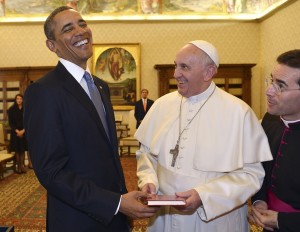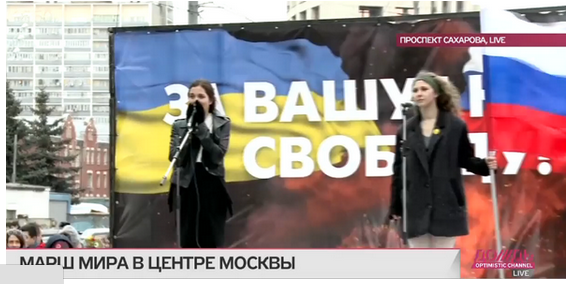-
Archives
- August 2019
- July 2019
- February 2019
- January 2019
- December 2018
- November 2018
- October 2018
- August 2018
- July 2018
- May 2018
- April 2018
- March 2018
- February 2018
- January 2018
- December 2017
- November 2017
- October 2017
- September 2017
- August 2017
- July 2017
- June 2017
- May 2017
- April 2017
- March 2017
- February 2017
- January 2017
- December 2016
- November 2016
- October 2016
- September 2016
- August 2016
- July 2016
- June 2016
- May 2016
- April 2016
- March 2016
- February 2016
- January 2016
- December 2015
- November 2015
- October 2015
- September 2015
- August 2015
- July 2015
- June 2015
- May 2015
- April 2015
- March 2015
- February 2015
- January 2015
- December 2014
- November 2014
- October 2014
- September 2014
- August 2014
- July 2014
- June 2014
- May 2014
- April 2014
- March 2014
- February 2014
- January 2014
- December 2013
- November 2013
- October 2013
- September 2013
- August 2013
- July 2013
- June 2013
- May 2013
- April 2013
- March 2013
- February 2013
- January 2013
- December 2012
- November 2012
- October 2012
- September 2012
- August 2012
- July 2012
- June 2012
- May 2012
- April 2012
- March 2012
- February 2012
- January 2012
- December 2011
- November 2011
- October 2011
- September 2011
- August 2011
- July 2011
- June 2011
- May 2011
- April 2011
- March 2011
- February 2011
- January 2011
- December 2010
- November 2010
- October 2010
- September 2010
- August 2010
- July 2010
- June 2010
- May 2010
- April 2010
- March 2010
- February 2010
- January 2010
- December 2009
- November 2009
- October 2009
- September 2009
- August 2009
- July 2009
- June 2009
- May 2009
- April 2009
- March 2009
- February 2009
- January 2009
- December 2008
- November 2008
-
Meta
O’Malley’s Photo Opportunity
 Boston’s “Cardinal Sean” pulls a cheap stunt:
Boston’s “Cardinal Sean” pulls a cheap stunt:
NOGALES, Ariz. — At a Mass held under the shadow of the border fence this morning, Cardinal Sean O’Malley, the archbishop of Boston called on Congress for comprehensive immigration reform this year.
“The system is broken, causes terrible suffering and is a waste of human resources,” O’Malley said.
This is the same priest who campaigned so hard (and so successfully) against Massachusetts’s Death With Dignity Act, a measure that would have done quite a bit to alleviate terrible suffering on his own doorstep.
O’Malley’s stance is, of course, very little to do with compassion, and a great deal to do with power, and more specifically, the power of numbers. Latino immigration fills pews, and (often) adds support for the Roman Catholic Church’s ideological agenda, an agenda that O’Malley is not, as we have seen, reluctant to impose on others.
But back to the cardinal:
“We’ve lost the sense of responsibility for our brothers and sisters. … America at its best is not the bigotry and xenophobia of the know-nothings but the welcome of The New Colussus.”
O’Malley was accompanied by eight other members of the U.S. Conference of Catholic Bishops and 17 other priests. The clergy gave communion to people on the Mexican side of the fence as part of the Mass.
“We see this as a moral issue, as an ethical issue,” said Bishop Gerald Kicanas of the Tucson Diocese…
The presumption, therefore, is that those who dare to disagree are a thoroughly immoral lot.
The committee of bishops, which favors a path to citizenship for undocumented migrants, on Friday called on Catholics to pray, fast and take action for immigration reform, such as sending members of Congress electronic postcards advocating change….
Posted in politics
Tagged Cardinal O'Malley, Immigration, Religious Left, Roman Catholicism
1 Comment
Connect the Dots
 From The Economist:
From The Economist:
Together with a general migration from the north-east and Midwest towards the sunbelt, the number of people leaving the faith has led to a shrinking of Catholicism in its former heartlands….
This shrinking has been offset by growth in the South and southwest of the country. The number of Catholics in the archdiocese of Atlanta has increased by 180% in 2001-11. In these growth areas two-thirds of all Catholics are Hispanic. Hispanics tend to have larger families and their children are more likely to stick with the religion than the offspring of white Catholics. This is causing a big change in the ethnic makeup of the faithful. About a third of American Catholics are Hispanic, but for those under 40 the share rises to almost half. The church’s building programme cannot keep up. In some parishes in Arizona the local church will hold up to seven services on a Sunday, says Gerald Kicanus, the bishop of Tucson. Finding enough pastors is hard: the diocese has brought in priests from Nigeria, India and the Philippines to make up for a shortage of home-grown ones.
Once they have found a pew, Hispanic Catholics expect a different kind of worship. Cross-carrying processions during Holy Week have become commonplace. The way the sign of the cross is made can differ, as can the use of holy water and the saints and shrines chosen for veneration—the growing cult of the Virgin of Guadalupe is the best example. Services have more music, and the kind of charismatic preaching performed by Father Hoyos in Arlington has gained ground.
This distinctive way of doing things extends to politics. Overall, America’s Catholics vote like the country as a whole. In 2012, 50% of Catholic voters backed Barack Obama and 48% went for Mitt Romney, his Republican opponent. But there was a clear divide between white Catholics, who favoured Mr Romney, and Hispanic Catholics, who favoured Mr Obama.
Though Hispanic Catholics are conservative on some social issues, such as abortion, this seldom determines their party allegiance. (The same is true of black evangelicals.) Their notion of the proper role of government is more Democratic than Republican. Some 61% of white Catholics say it should reduce the income gap between rich and poor. For Hispanic Catholics the figure is 86%. For Mr Obama, who was to meet the pope on March 27th, these numbers must seem miraculous.
So Latino immigration helps fill Roman Catholic churches and brings votes the Democrats’ way.
And both that church and that party favor more of it.
Possibly a phenonemenon that it does not need a Sherlock Holmes to explain.
Posted in politics
Tagged Democratic Party, Immigration, Religious Left, Roman Catholicism
Comments Off on Connect the Dots
Don’t cancel Colbert, Asian Americans should accept a double standard in regards to sensitivity
So apparently there’s a big controversy now about some things that Comedy Central tweeted out in the voice of Stephen Colbert’s character on his show on that network. As it is the age of Twitter activism, there is now a campaign to cancel the Colbert Report. Dave Weigel outlines the first act of the controversy, highlighting the essential role of Suey Park, along with the fellow-travelling of conservative commentator Michelle Malkin. In the wake of this there was a contentious interview of Park on Huffington Post Live where the host made no secret of his contempt for her opinions on this issue, to which she responded by stating that their respective genders and races made it so that he should withhold commenting on the topic in such a bold and aggressive fashion.
There are many layers here. But I’ll keep it concise.
First, the context of the Colbert tweet was such that it was clearly satire in the voice of his character. Though the nature of the online outrage machine is such that apologies and groveling are necessary, they shouldn’t be.
Second, there is a different standard for Asian Americans in terms what one can say about them and how one can depict them. For example, explicit stereotypes about Asian males which tend toward emasculization in the pop culture have far fewer analogs when compared to African American males than in the past (obviously the stereotypes about African American males are different, at the opposite extreme when it comes to sexuality) . And as the clip above illustrates liberals in good standing can say insensitive things about Asian Americans casually which wouldn’t be tolerated for blacks. “Ching chong” and the “N-word” are in different classes of insult.
Third, this different standard is defensible. American culture has a different, and sui generis, relationship to blacks when compared to racial and ethnic minorities which arrived later (Native Americans are also sui generis). This is a fact. You may attempt to bracket the prejudice experienced by Asians in the 19th and 20th centuries into the same class as African Americans, but it is not unreasonable to deny equivalence. This denial is implicit in the way people react to offensive generalizations about different minorities.
Four, classes of marginalized are not commensurable. The experience of women as a class is fundamentally different than that across racial lines. The experience of a ethno-religious minority which is coded as white (e.g., Jews) is different from that of an Asian American one, and these are different from the African American experience. Similarly, those who are physically disabled also experience the world very differently. Because of these differences it makes sense that not all responses to similar dynamics operating upon the classes should be the same. They’re not variables with a different value, they’re fundamentally different variables where the values have radically different outcomes in the calculus. Leftist radicals don’t seem to understand or accept this, and translate arguments and paradigms across all the classes assuming equivalency.
Five, activists like Suey Park do highlight a glaring hypocrisy among white liberals in terms of their attitudes. Conservative non-whites have long known this, because they (we) are subject to snide insinuations and attacks which in other contexts would seem racist. But since they (we) are not liberal, it is socially acceptable to an extent. Implicit is the idea that white people have ideological diversity due their values, while non-whites only have interests. Black conservatives who espouse race neutrality that might have negative consequences for blacks are traitors to their race, while white liberals who favor preferences which might hurt whites are idealistic. This patronizing attitude is probably why Michelle Malkin is sympathetic to Park’s outrage, as Leftist activists who are non-white are more conscious to the glaring blind spots of white liberals. If, for example, you have a group of white Republicans meeting together without many people of color in the audience there are often implications of racism bandied about by liberals. But if you look at the demographic profile of the neighborhoods many white liberals choose to raise their families, they are no different from that of white conservatives, except politics. But being liberal they have difficulty imagining how they could be racist. The identities, the essential aspects, of the individuals matters. Among the reactions to Miley Cyrus’ scandalous MTV performance white feminists began to decry the “slut-shaming” of the performer. But soon enough black feminists objected to her exploitation of the bodies of black women. Obviously who you are impacts what you see. White feminists saw Cyrus being unfairly targeted, but did not see objectification of black women (one can debate whether there was such objectification, but it’s not an unreasonable line of argument once you assume standard Leftist priors).
Six, so perspective matters. But different perspectives don’t mean that any one person has the One True Opinion. In the abstract Leftist cultural activists can accept this, but in the concrete real world scenario they tend to want to impose their own perspective in an almost Stalinist manner. This is one reason there is so much faction among identity activists, as they argue stridently for the superiority and dominance of their own narrative over that of rivals. In the discussion with the Huffington Post Live reporter Suey Park attempted to negate any blunt critique by her interlocutor by highlighting his identity as a while male. She attempted to object to being “silenced” by demanding that he be silent! One of the norms of the Leftist radicals is that one must always listen and not talk back to the more-oppressed-than-thou (though of course there’s often a long process of privilege checking and toting up in some cases; even egalitarians have their own aristocracy of oppression). This means that white males should be silent unless they can involve themselves in acts of more-Stalinist-than-thou radicalism, where their zeal for purging validates their participation.
Seven, this dynamic is a non-starter in the general culture, and Leftist radicals seem to forget that they’re a small subculture outside of the academy. Their Form of Life is not dominant or normative. Suey Park for example uses the stilted academic lexicon of a “grad school dropout,” which illustrates her own “privilege.” Axiomatic terms like “ally” and “intersectionality” are meaningless outside of this cultural domain, but they can’t help but sprinkle their “discourse” with terms which are more appropriate to a gradual school seminar. This in a culture where only ~25% have undergraduate degrees, often in vocational or scientific fields where Critical Theory is unknown. The irony is that Leftist activists forget that cultural diversity means that not all arguments are going to be won on their own terrain, with the terms of the game determined by their preconceptions as to the nature of how the world works, and how it ought to work. They are not hegemonic over the rest of us. Just as white liberals tend to assort with themselves (look at how many minorities there are in Flickr photos of young DC progressives), and develop blind spots, so Leftist activists like Suey Park lose sight of the reality that others see different skies at night than all of her friends (numerous as they may be on Twitter).
Finally, my conservative friends & I have observed the bizarre flame-outs on the internet between different sects of cultural Leftists, akin to the violent conflicts between radical Christian sects in the back-country of 4th century Anatolia over picayune theological or liturgical differences, for years. Watching the circular firing squads is like a guilty pleasure. An ideological “shark week.” But it is not healthy for a unitary society to fracture into so many incomprehensible clans. Many of my liberal friends on Twitter for example don’t realize, and can’t understand, that I don’t even share their presuppositions. When it comes to politics they start with assumptions that they think are universally held by all, but which I reject. By analogy, it’s when English speakers presume that everyone else in the world understands English. This isn’t a recipe for respectful discourse and any meeting of the minds. Perhaps in the end all is a raw power struggle, a brutal war of all-ideas-against-all ideas.
Addendum: Readers who are new should be aware that I’m a brown American male.
Dana Rohrabacher, Again
 Dana Rohrabacher, Republican congressman and scourge of Pussy Riot, is at it again.
Dana Rohrabacher, Republican congressman and scourge of Pussy Riot, is at it again.
…Then came Russia’s takeover of Crimea, and Mr. Rohrabacher had to draw the line — in favor of Mr. Putin.
“There have been dramatic reforms in Russia that are not being recognized by my colleagues…The churches are full. There are opposition papers being distributed on every newsstand in Russia. You’ve got people demonstrating in the parks. You’ve got a much different Russia than it was under Communism, but you’ve got a lot of people who still can’t get over that Communism has fallen.”
What about Pussy Riot, the Russian protest group? Its members were jailed for criticizing Mr. Putin, released, then publicly flogged when they showed up at the Winter Olympics in Sochi.
“Well, I don’t think that happens often,” Mr. Rohrabacher said with a shrug. “There are lots of people demonstrating in the streets of Russia who are perfectly free to do so.”
Don’t get me wrong, Russia has changed immensely (and generally for the better) since the fall of the Soviet Union, but there is a middle ground between accepting that the old Cold War certainties no longer apply on the one hand, and a starry-eyed enthusiasm for the emerging new Russia on the other, but that’s not where Dana Rohrabacher stands.
Posted in politics
Tagged Dana Rohrabacher, Pussy Riot, Russia, Ukraine, Vladimir Putin
Comments Off on Dana Rohrabacher, Again
Idol Words
 There are those who think that Europe’s appalling unemployment problem can be explained by overly rigid labor markets, the spiraling energy costs that greenery has brought in its wake and, of course, the ill-judged introduction of the euro.
There are those who think that Europe’s appalling unemployment problem can be explained by overly rigid labor markets, the spiraling energy costs that greenery has brought in its wake and, of course, the ill-judged introduction of the euro.
Pope Francis has a different explanation:
“What can we say, when faced with the very serious problem of unemployment that affects various European countries?”, he asked. “It is the consequence of an economic system that is no longer able to create work, because it has placed at its centre the idol of money…”
It’s hard to work out what’s worst about that comment, its frivolity, its ignorance or its demagoguery.
The trinity is incoherent
I quite like BBC Radio 4’s In Our Time. But the most recent episode was on the Trinity. You can listen to online. Most of the time the host has scholars who are there to illuminate the educated public on some fascinating topic. But in this case it seems clear that no one has any idea what they are talking about. The problem here is not the scholars, it is that after nearly 2,000 years no one understands the Trinity well enough to speak about it coherently. This brings to mind Wittgenstein’s phrase, Whereof one cannot speak, thereof one must be silent.
The Pope and Peron
 In the course of a lengthy piece on Pope Francis, The Economist looks at the pontiff’s political and economic opinions and (correctly, in my view) finds them rooted in the history of the country of his birth:
In the course of a lengthy piece on Pope Francis, The Economist looks at the pontiff’s political and economic opinions and (correctly, in my view) finds them rooted in the history of the country of his birth:
The political landscape of Francis’s homeland, however, offers a more accurate, and nuanced, understanding of his views. For most of his life Argentina has plotted a kind of third way between Marxism and liberalism—albeit one with disastrous political and economic results. “[Francis] only knows one style of politics,” says a diplomat accredited to the Holy See. “And that is Peronism.”
The creed bequeathed by Argentina’s former dictator, General Juan Perón, with its “three flags” of social justice, economic independence and political sovereignty, has been endlessly reinterpreted since. Conservatives and revolutionaries alike have been proud to call themselves Peronist. But at its heart it is corporatist, assigning to the state the job of resolving conflicts between interest groups, including workers and employers. In that respect it resembles fascism and Nazism—and also Catholic social doctrine.
The pope’s Peronist side shows in his use of a classic populist technique: going over the heads of the elite to the people with headline-grabbing gestures and comments. And it is visible in his view of political economy, which also has much in common with post-Marxist protest movements such as Occupy Wall Street, the Spanish indignados and Italy’s Five Star Movement. “While the earnings of a minority are growing exponentially, so too is the gap separating the majority from the prosperity enjoyed by the happy few,” he has written. “This imbalance is the result of ideologies which defend the absolute autonomy of the marketplace and financial speculation. Consequently, they reject the right of states, charged with vigilance for the common good, to exercise any form of control.”
The Economist is perhaps too polite to mention the fact that crude reductionism, scapegoating and argument by straw man are also often “classic populist techniques”, and ones, regrettably, that this pope sometimes appears willing to deploy. Nevertheless, the magazine does find space to include this:
One passage in Evangelii Gaudium [This pope’s first ‘Apostolic Exhortation’] appalled many: “Just as the commandment: ‘Thou shalt not kill,’ sets a clear limit in order to safeguard the value of human life, today we also have to say ‘Thou shalt not,’ to an economy of exclusion and inequality.” Even more radically, he quoted St John Chrysostom, an early church father: “Not to share one’s wealth with the poor is to steal from them.”
This, of course, was (as The Economist noted) the same document that included, without qualification, this:
“Today everything comes under the laws of competition and the survival of the fittest, where the powerful feed upon the powerless.”
Everything?
Posted in politics, Religion
Tagged Peronism, Pope Francis, Religious Left
Comments Off on The Pope and Peron
Contrasts: Pussy Riot and the New ‘Useful Idiots’
 Two of the formerly-jailed Pussy Rioters have been in Moscow today, bravely speaking at a demonstration to oppose what Putin is doing in Ukraine.
Two of the formerly-jailed Pussy Rioters have been in Moscow today, bravely speaking at a demonstration to oppose what Putin is doing in Ukraine.
Meanwhile, Right Wing Watch (I know, I know) reports that Concerned Women of America will no longer be attending a ‘World Congress of Families’ summit scheduled to be held in the Kremlin later this year. The group’s CEO Penny Nance has said, “I don’t want to appear to be giving aid and comfort to Vladimir Putin.” Well, it’s taken a while for the penny to drop, Penny, but good.
On the other hand:
CWA’s choice is especially surprising because its senior fellow, Janice Shaw Crouse, is amember of the board of the World Congress of Families and has been a vocal defender of Putin’s social policies. Last month, Crouse even appeared at a press conference promoting the Moscow summit.
Now the question becomes whether other American groups will follow Nance’s lead. An organizing meeting for the event in October included Brian Brown of the National Organization for Marriage, Tom Minnery of Focus on the Family, Benjamin Bull of Alliance Defending Freedom, Justin Murff of the Christian Broadcasting Network and Austin Ruse of the Catholic Family & Human Rights Institute.
A draft program for the event that was obtained by Buzzfeed includes speeches by ADF president Allan Sears, Focus president Jim Daly, Mike Farris of the Home School Legal Defense Association, Brown, Ruse and Murff, among others.
In addition, the World Congress of Families receives funding from “partner organizations” including the Family Research Council, the American Family Association, and Americans United for Life.
The World Congress of Families’ Larry Jacobs said at last month’s press conference that members of the U.S. Congress would also attend the event, though he would not specify which ones since he said their confirmations were not yet finalized. The draft program also accounts for speeches from unidentified members of Congress. to speak.
As we’ve noted, the planned summit is more than just a trip to Moscow. It’s being held at the Kremlin with funding from key Putin allies and will include a joint forum with Russia’s parliament. In addition, the World Congress of Families itself has been working to support Putin’s crackdown on LGBT rights in Russia…
Ruse articulated the apparent attitude of many American groups when he told Buzzfeed that although the Ukraine invasion “muddied the water,” he had not been concerned about working so closely with the Putin regime until now, “because the Russian government has been quite good on our issues.”
Useful idiots, redux.
Posted in Uncategorized
Tagged Pussy Riot, Religious Right, Russia, Ukraine, Vladimir Putin
1 Comment
Multiculturalism will collapse due to its own internal contradictions
Canada is arguably the apotheosis of modern Western multiculturalism (nations like Belgium are not in any sort of honeymoon phase obviously with the idea of inter-cultural amity). This article in The New York Times highlights the fundamental problem at the heart of this sort of political and social project, Canada Grapples With Adapting to Minority Needs:
At York University in Toronto, a furor erupted in January over a request by a student taking an online sociology course to forgo an on-campus session, because he said his religious beliefs did not permit casual contact with women.
…
At York, the professor refused to grant the student’s request, believing that it would be a dangerous precedent, labeling women as second-class citizens….
“It all goes back to the fundamental values the university has put in place that shape the culture — equity, diversity and inclusion — and tying them back to excellence,” said Sandra Carnegie-Douglas, the University of Toronto’s anti-racism and cultural diversity officer. “We look at what we need to do as a university to give students access so they can perform with excellence.
It is passé to point out the difficulties in accommodating both gender egalitarianism and religious traditions for which strong differentiation in sex roles and interaction are mandatory (e.g., Orthodox Judaism, Islam, and some conservative variants of Protestantism). Rather, I want to highlight the general idea of inclusion and diversity. The problem is that many cultures around the world revolve around the theme of exclusion, or at most assimilation of the Other. In fact this is much more normative over the history of the world than the multiculturalism that has emerged in the West after the 1960s. To be entirely frank, post-1960s Western multiculturalism is sui generis. It seems to view a person’s suite of cultural characteristics being assembled together a la carte, as individuals select of their own free will from a set of practices and beliefs so as to maximize their own self-actualization. The reality though is that for most humans cultures are imbibed as if one is selecting prix fixe menus, subscribing to a whole host of beliefs simultaneously, many of which are at contradiction with the individualist liberal ethos.
Obviously these are two stylized caricatures,* but they capture the basic essence of the dynamic. Western multiculturalists, steeped in the language of equity, diversity, inclusion, and egalitarianism, seem to tacitly assume that societies which they are attempting to integrate will discard all illiberal aspects, while maintaining the languages, dress, and food, which make them distinctive. But the truth here is that ultimately multiculturalism of this form turns non-Western cultures into carnival sideshows, colorful harmless variants of the Western liberal individualist template.
* There are nuances here. American Roman Catholics share more cultural orientations with their Protestant neighbors than with non-American Catholics. You need to peel back the sticker sometimes and ignore labels to get at the heart of cultural variation.

